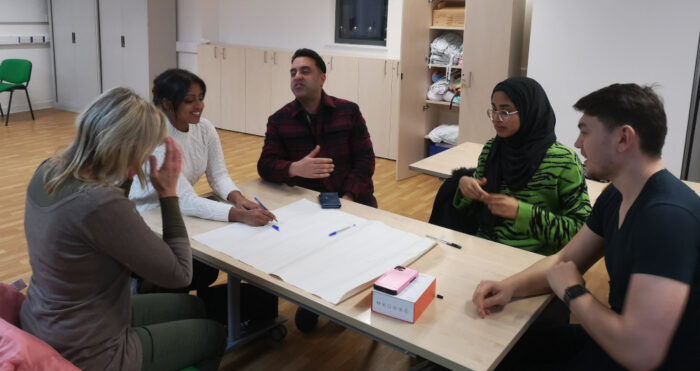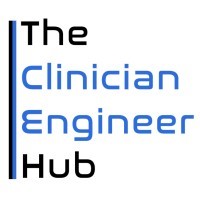Tharushi is a fifth-year medical student at Churchill College. She is also an active member of the Clinician Engineer Hub, an international network aimed at bridging the gap between medicine and engineering.
Tharushi’s story
I was born in Colombo, Sri Lanka and moved to the UK at the age of 5.
I’ve always had very strong and broad passions for many STEM subjects, especially maths, physics and biology. So when it came to choosing what I wanted to study in the future, I found that Medicine was the perfect field in which all of these subjects collided. Additionally, I’ve always been very committed to pursuing a life of giving back to the community, which a career in Medicine enables me to do. I’ve always believed that life is best lived when it is spent giving to others.
Having been pooled at Churchill, I consider myself incredibly fortunate to have ended up here! I admire the strong focus on STEM subjects, and the grounds and facilities are fantastic and very spacious. Over the last 5 years, Churchill really has provided me with the ideal home during my time studying and I’ve made some wonderful friends and great connections here.
Innovating in the field of clinical engineering
I’ve always been interested in programming and technological development, although it was a passion that became dormant after my GCSEs when I had to let go of studying Computer Science. But my passion was reignited when I discovered the World of MedTech and Clinical Engineering which allowed me to start utilising and enhancing my technology skills once more. In my third year, I undertook a project in developing a portable wireless 12-lead ECG recording device which really allowed me to gain some invaluable skills in programming and electronics. More recently, I’ve been involved in some projects on the use of immersive VR for Orthopaedic Surgical Training with Mr Niel Kang. Last year, I presented this research at an International Orthopaedic Conference in Malaysia, and I’m incredibly appreciative of the support I received from college to attend the event.
I first learned about the Clinician Engineer Hub (CEH) through its founder, Dr Neel Sharma. I was intrigued by Neel’s story and the work of the CEH as it overlapped with many of my own interests. Throughout time, it has been the inventions and innovations of unique-minded thinkers which have driven the field of Medicine forward. This required people who asked the right questions and dared to think along unventured lines, who came up with novel ways to improve the Science of Medical Practice and the Art of better people’s lives. Today, we still need unique thinkers like this to innovate in the field of Clinical Engineering, especially those who can analyse problems with a clinical-engineering hybrid mind. While clinicians and engineers are in plentiful supply, those with capabilities of cross-disciplinary thinking are much more limited. Therefore, what the Clinician Engineer Hub provides are opportunities for students to learn more about the unique field of Clinical Engineering and develop basic skills in how to explore and engage in this field further.
Since getting involved with the CEH I have presented a webinar charting my own story in Clinical Engineering and I also helped co-organise and host the Clinician Engineer Hub Winter Exchange in early February. The event welcomed some amazing speakers from the Clinical Engineering industry and allowed participants to gain a unique insight into the field.
I spend my spare time giving back to the various communities I’m a part of. I’m a trustee at the previous school I attended, Townley Grammar School. I also tutor students applying to Medicine and other STEM subjects and am an NST1B Pharmacology Supervisor at Churchill.
Looking ahead, I’m very interested in a surgical career but I’m also keen to continue developing my involvement within the Clinical Engineering Industry.
The Clinician Engineer Hub
The Clinician Engineer Hub, an international network aimed at bridging the gap between medicine and engineering, has landed in Cambridge from its launch base in Birmingham.
It began in 2019 as a collaboration between Queen Elizabeth Hospital Birmingham, Imperial College London and King’s College London and has grown ever since.
The Hub offers educational, research and industry opportunities for medical students and doctors keen on developing engineering know how in healthcare. It has gained support from multiple institutions including the Mayo Clinic and World Health Organization and its efforts thus far have been recognized by the NEJM and the Lancet.
Educational events have included winter and summer school programmes at no cost where participants have spent time immersed in both the hospital and lab based settings. During COVID 19 events moved online and are freely available on the Hub’s YouTube Channel. This enables individuals globally to access content anytime anywhere at no added expense. The Hub recognizes that not everyone can afford the expense of training programmes and by having its content placed online candidates can benefit greatly in terms of learning. Its webinars have seen speakers from Google Health, Amazon and Microsoft.
Its research activities are in partnership with various lab spaces. Many academics have shown a keen interest in supporting learners and have offered their labs to assist in the growth of future clinician engineers. Recently for example clinicians from Qatar University visited lab spaces at Imperial’s Dyson School of Engineering where they were immersed in robotics and sensing devices.
The Hub has also been working closely with industry partners. One such partner is i3 simulations an expert organization involved in the development of immersive technologies that are designed to enhance the training of health care providers and therefore minimize errors in patient care.
Dr Neel Sharma its Founder and Director based at Cambridge University Hospitals NHS Foundation Trust added, ‘Cambridge is the home of Silicon Fen with numerous tech based companies. The environment is just perfect for further expansion of the Hub. It is an exciting time for innovation across the clinician engineer interface and I am hopeful that many more opportunities will be granted for doctors who wish to pursue clinician engineering as their focus.’
Tharushi Wijesena, student doctor Churchill College, University of Cambridge commented, ‘We need more clinician engineers in the field. Clinicians, in themselves, are engineers of the human body – one of the most immensely complex machines in existence. Now imagine, taking that intimate knowledge of anatomy and physiology that clinicians have, and infusing that with the forward thinking of modern technology. The innovations this would lead to would accelerate our capabilities in healthcare light-years into the future, because currently medical technology is decades behind where other fields of technology are at, and the only way to remedy this is to encourage more clinicians to brave the world of engineering.’
For further information and updates visit www.clinicianengineer.com


